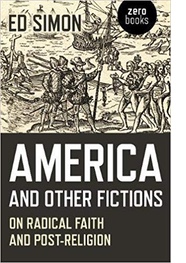Critics of Trump’s Immigration Policy Can Cite the Bible, too

The Bible is a varied, complicated, and sometimes contradictory document, as one would expect from any text written by dozens of people, across centuries and cultures, and is subject to varying translations and interpretations. Yet for all of the differences of moral and theological nuances, it is strikingly unified when it comes to the question of how a stranger in our midst should be treated. Exodus 23:9 – “Do not oppress a foreigner.” Leviticus 19:33-34 – “When a foreigner resides among you in your land, do not mistreat them.” Matthew 25:25-36 – “I was a stranger and you invited me in, I needed clothes and you clothed me, I was sick and you looked after me.”
 Across the Hebrew Scriptures, the Gospels, and the epistles, it is held that the immigrant, the refugee, and the stranger must be treated with compassion, as if they were our own brothers and sisters. This belief is a steadfast and perennial article in the Bible. Similar passages to the ones mentioned are found in Deuteronomy, Ezekiel, Malachi, 1 Kings, Job, Luke, Galatians, Corinthians, and among others. For being a remarkably ambiguous text in so many ways, its position on the treatment of immigrants is consistent.
Across the Hebrew Scriptures, the Gospels, and the epistles, it is held that the immigrant, the refugee, and the stranger must be treated with compassion, as if they were our own brothers and sisters. This belief is a steadfast and perennial article in the Bible. Similar passages to the ones mentioned are found in Deuteronomy, Ezekiel, Malachi, 1 Kings, Job, Luke, Galatians, Corinthians, and among others. For being a remarkably ambiguous text in so many ways, its position on the treatment of immigrants is consistent.
Something to think about as Americans are confronted with the horrific images of refugee children, some as young as toddlers, kept in cages at ICE detention centers near the border, as we hear accounts about babies taken from their nursing mothers, and perhaps most distressingly of all, when you listen to the actual cries of detained children while officials joke about that distress. Despite disingenuous claims from President Trump that such cruel policies are simply the “law,” or the responsibility of the Democrats, these draconian procedures find unequivocal origin in the current administration – even as they now claim a “change of heart” which many experts argue is no solution at all.
The strategy of separating families of asylum seekers to purely discourage immigration by demonstrating the government’s capacity for cruelty was concocted by presidential advisers like Stephen Miller, facilitated by Attorney General Jefferson Beauregard Sessions, and rationalized by Press Secretary Sarah Huckabee Sanders. Far from lying about the provenance of the policy as the president has continually done, both Sessions and Sanders justified such action with biblical recourse to Romans 13, wrenching Paul’s words out of their context in an exegetical maneuver that’s been favored in the past by apologists for slavery.There have been swift and unequivocal condemnations of both the policies and the misuse of scriptural language by the administration from faith leaders, including the U.S. Conference of Catholic Bishops, the United Methodist Church of which AG Sessions is a member, and surprisingly from Trump supporter Rev. Franklin Graham.
Even while on social media millions of dollars have been raised to aid the immigrants, and massive marches are being planned in over 130 cities on June 30, a grand narrative unified in language and symbol remains elusive. Linguist George Lakoff describes how “metaphorical framing” is instrumental in politics, not even primarily in convincing one’s opposition, but primarily in providing cohesion to your own side as well. Trump arguably got elected by deftly using such metaphorical framing, presenting an erroneous, simplistic, and terrifying spectacle of “American carnage” and promising that “I alone can fix it.” Trump’s opposition on the other hand has unfortunately remained mired in what Lakoff describes as the fallacious assumption that “all you have to do is tell people the facts and they will reason to the right conclusion.” Trying to convince the most extreme of Trump supporters with logic is increasingly a losing proposition. What is even more problematic are how Trump’s opponents frequently engage in arguments with one another instead of agreeing on a shared language of resistance.
That’s because while close to three quarters of Americans disapprove of what’s happening at the border, having seen the awful images of the most vulnerable among us separated from their parents and forced to sleep under metallic blankets in cages, a clear and compelling grand narrative of opposition has yet to fully coalesce.
Rhetorically, opposition to the detentions is sometimes phrased in a language of American exceptionalism, a gesture towards the belief that the Trump-Sessions-Miller policy is particularly un-American. Critics of that sort of language justifiably point to the nation’s history of slave auctions, American Indian schools, and Japanese-American internment to explain that the nation has never been exceptional. The former language is either naïve or ignores historical truth, but the later perhaps suffers even more egregiously by providing a narrative that lacks in inspiration and threatens to alienate or exclude millions of potential needed allies. Such disarray is to the benefit of an administration that excels in deflection, projection, and gas-lighting, where disagreement and confusion among the resistance is central to their continuation or expansion of such policies.
As a means of threading the difference between those two rhetorical approaches, we could do worse than to return to America’s first indigenous rhetorical form and literary genre, the Jeremiad. Simultaneously a method of scriptural interpretation as well as a prophetical call, the Jeremiad draws its name from the most radical of the books in the Hebrew Scriptures, and has defined American political rhetoric from the 17th century until today. Most fully explicated by the historian Sacvan Bercovitch in his indispensable classic TheAmerican Jeremiad, the form draws its urgency from the biblical book in which the prophet castigates and condemns the nation’s distance from its highest ideals.
In a nation permeated with the idea of covenant, where definitions of national identity have often been based on a shared creed more than a shared background, the jeremiad was a particular potent literary genre that held America to account for not living up to her principles. Sermons structured around this theme were common among the second generation of New England Puritans, with Rev. Samuel Danforth’s sermon Errand into the Wilderness, Benjamin Thompson’s epic poem New England’s Crisis, and Rev. Increase Mather’s A Day of Trouble is Near being exemplars of the form. Prefiguring Lakoff’s observation, Bercovitch writes: “Rhetoric functions within a culture. It reflects and affects a set of particular psychic, social, and historical needs. This is conspicuously true of the American jeremiad…. Myth may clothe history as fiction, but it persuades in proportion to its capacity to help people act in history.”
For finding its origin in Puritan religious sentiment, the jeremiad has been amenable to secularization and I would argue is the most significant and ultimate expression of American political rhetoric. President Abraham Lincoln’s “Gettysburg Address,” Rev. Dr. Martin Luther King Jr.’s “I Have a Dream,” and President Barack Obama’s “A More Perfect Union” were all jeremiads, and only the middle one was conventionally a sermon. What they all share with the archetypal form is a condemnation of the nation’s falling short of its defining principles, and a call to live up to those principles. Bercovitch writes about how “the anti-jeremiad” forecloses alternatives “by reading into America the futility and fraud of hope itself.”
Sanders speaks in such a language of futility and fraud when she claims “that it is very biblical to enforce the law.” Let her hold to such futility and fraud, the rest of us will choose hope. Better to remember Jeremiah 22:3 – “Do no violence to the stranger.” As we begin to organize against such an inhumane and cruel actions taken in our name, we’d do well to turn to Jeremiah in finding a particularly American language in opposition to the actions of the administration, one which acknowledges the crimes of the past but does not give into the deterministic despair of history, for it also is reverential before the utopian principles of what deserves to be but is not yet.
Bercovitch writes that as concerns the jeremiad that “Ultimately, its effectiveness derives from its functional relationship to facts.” Those opposing Trump already have the facts. They’re just beginning to find the poetry. In large part that’s being supplied by people of faith, and all of us, both secular and religious, would do well to hear that poetry, especially when written in the language of that prophet who loved justice more than any other.